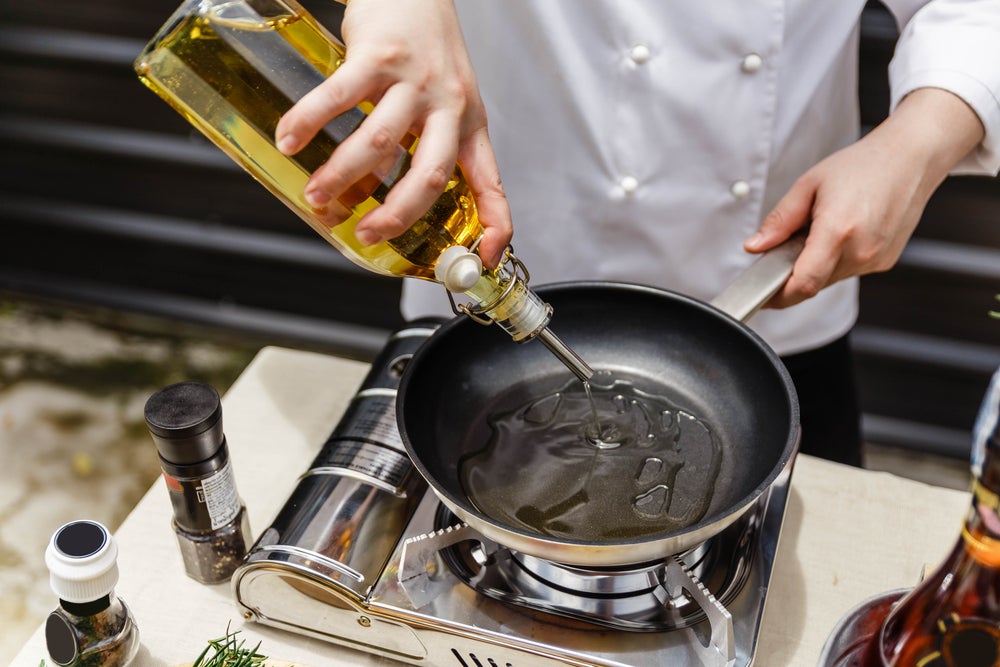
The answer has to do with the oil’s smoke point.
Countless cookbooks and TV chefs have warned us of the dangers of cooking with olive oil—especially extra-virgin olive oil—over high heat. The oil’s smoke point is too low, they say, just 375 degrees (and not much higher for refined olive oil), and smoky oil is bad news. But what’s actually smoking, and what’s really bad about it? Though all oils are, molecularly speaking, fats, those fats themselves are made of molecular chains called fatty acids. Most of those fatty acids are bonded to glycerol molecules to form fat, but every oil contains some free-floating fatty acids unbound by atomic or social convention.
When exposed to high heat for long periods, these free-wheeling fatty acids break down, and that reaction produces smoke. This is an oil’s smoke point, and while it’s true that this molecular decomposition can release some harmful compounds into your food, the concentrations are tiny. Ninety-nine percent of olive oil’s biomass is made of perfectly straightlaced, un-free fatty acids unaffected by that smoke.
In other words, perfectly safe to eat. And unless you have a habit of routinely scorching olive oil until it turns the color of caramel, you’ll hardly notice the change in flavor. So go forth and sear and stir-fry with abandon: Extra-virgin olive oil is totally up for the job.